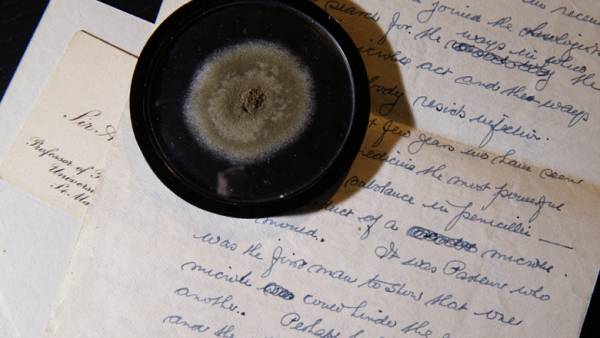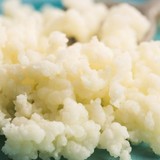90 years ago scientist Fleming received the first antibiotic — penicillin
90 years ago, the British microbiologist Alexander Fleming received the world’s first antibiotic — penicillin. After further research failed to establish industrial production of the drug, which during the Second world war saved hundreds of thousands of lives.
Upstairs
90 years ago, the British microbiologist Alexander Fleming accidentally isolated from fungi penicillin — the world’s first antibiotic. Mass production of the drug was established during the Second world war. It is believed that the opening of the Fleming helped to avoid hundreds of thousands of victims. Henceforth, even serious injury is not entailed imminent demise.
In world war I Fleming served as a military doctor. Save the soldier, he took many painful deaths from gangrene or sepsis.
To the landmark invention of the scientist pushed a coincidence. In early September he started to work in his laboratory after a month of vacation with family. Before leaving Fleming collected all the cultures of staphylococci on a table in the corner of the room. And on return noticed that one colony where there appeared fungi — have been destroyed, while others remained intact.
The news “Healing” herbs, which are actually useless
“Healing” herbs, which are actually useless
The grown fungi were assigned to the genus penicilloic. The name of the scientist introduced penicillin on 7 March 1929.
Genius former assistant Merlin Price, after evaluating the surveillance, notice that similar to the earlier Fleming discovered lysozyme — an antibacterial agent, an enzyme class of hydrolases that destroy the cell walls of bacteria by hydrolysis of peptidoglycan of bacterial cell walls muraina. This event also occurred largely by chance: being a cold, Fleming sneezed and saw that secreted nasal mucus could destroy some bacteria.
Fleming explored the positive antibacterial effects of penicillin on many organisms, and noticed that it inhibits bacteria such as Staphylococcus, Streptococcus, pneumococcus, gonococcus, diphtheria Bacillus and Bacillus of anthrax, but no effect on Escherichia coli, typhoid Bacillus and the causative agents of flu, paratyphoid, cholera, from which Fleming also tried to treat.
The opening of the British scientist heralded the era of modern antibiotics. Fleming also found that the bacteria had antibiotic resistance, if acted a small amount of penicillin, or if antibiotics were used too short a time.
The inventor warned about the undesirability of the use of penicillin to determine the diagnosis. If the tool is really key, you can not use it for a very small period and in small doses. In such conditions, bacteria develop resistance to antibiotics.
Talking about, obviously, the main day of his life, Fleming did not hesitate to emphasize the randomness of the opening:
When I woke up at dawn on September 28, 1928, I certainly didn’t plan a revolution in medicine with his discovery of the world’s first antibiotic, or bacteria killer. But I guess that’s what I did.
The researcher continued to experiment, but for a very long time penicillin has remained unnoticed in scientific circles. Its application did not fit in, then adopted the concept of strengthening the immune system.
News Israeli scientists: probiotics do not carry almost any benefit
Israeli scientists: probiotics do not carry almost any benefit
The next step in the development of penicillin began development Professor Okhotskogo University Howard Florey and chemist Boris chain, who, being a Jewish left-wing views, was forced to emigrate to England after the coming to power of the Nazis in Germany.
The chain continued Fleming’s research and was able to obtain the crude penicillin in sufficient quantities for the first biological tests on animals first, and then in the clinic.